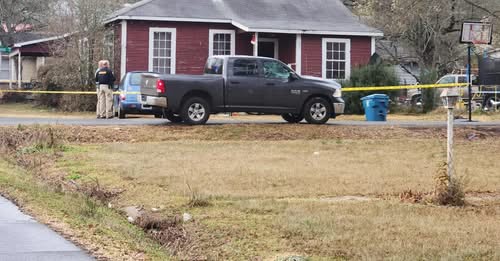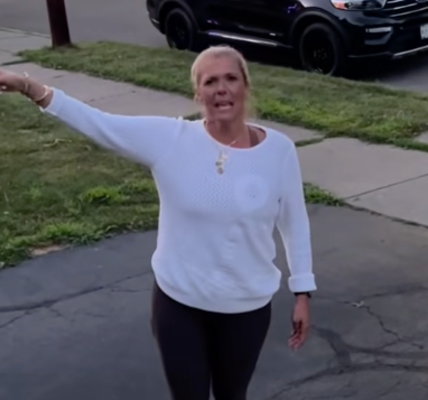Louisiana Senate Bill on Juvenile Offenders Sparks Debate: Is the Current System Too Lenient on Violent Youth Crimes
The Louisiana Senate Bill concerning juvenile offenders is sparking significant attention and debate. With a mixture of confusion, misrepresentation, and political maneuvering, it’s crucial for people to understand the specifics of this bill, its implications, and the consequences it aims to address—especially when it comes to violent juvenile crime.
One of the loudest voices in opposition to the bill has been Caddo Parish District Attorney James Stewart. His rhetoric, however, is raising more questions than answers. DA Stewart has made public statements claiming that the bill will not take away juvenile courts and that it leaves discretion to his office for charging decisions. While these statements are technically correct, they also omit crucial details that could shed light on the true nature of the legislation. The bill does not eliminate juvenile courts but rather gives more leeway to prosecutors, particularly in cases involving violent crimes, to decide whether to charge juveniles as adults or keep them within the juvenile justice system.
A key part of the debate is Stewart’s claim that he is already doing a good job handling juvenile cases. He points to his track record of prosecuting juvenile offenders, asserting that his office is responsive to public concerns and “the people spoke.” But what exactly do we mean by “the people”? Has the public fully understood the consequences of the current system? Or are we missing some critical cases in which a softer juvenile justice system might not be the right approach?
Consider the tragic case of Corterion Collins, a 17-year-old who was killed in December 2022 by another 17-year-old. The shooter, charged with second-degree murder, was still treated as a juvenile—despite the severity of the crime. Within just 90 days of the homicide, the shooter was already being considered for release, and his attorney even requested weekend visits at home. This case has become emblematic of the kind of tragic situation that the new bill aims to address. Was the shooter charged as an adult? No, and that is a point of contention. Many believe that juveniles committing violent offenses should be held more accountable. But under the current system, young offenders, even in extreme cases, have the potential to walk away from significant charges with relatively little long-term consequence.
This situation begs the question: should we be tougher on violent juvenile offenders? The answer is not straightforward. The bill is not about throwing away the key for all juvenile offenders, but rather about ensuring that violent criminals, regardless of age, are held to an appropriate level of accountability. In a case like Corterion Collins’s homicide, many believe that the shooter’s treatment as a juvenile was far too lenient. This is the context in which the bill’s supporters argue that it is necessary to give the legal system more flexibility in dealing with such offenders, especially when their actions result in tragic loss of life.
It is important for people to fully understand what this bill entails before forming an opinion. Misinformation and political rhetoric are clouding the conversation, and some individuals may be leveraging fear to drum up opposition or support based on their own interests. As we’ve seen in the case of Caddo DA James Stewart, there is an element of political calculus at play. With re-election looming, some may be hesitant to push for tougher measures on juveniles, fearing backlash from constituents who have not fully engaged with the complexities of the issue.
But what’s more important than political games is the safety of our communities and the well-being of our children. We must ask ourselves: is the juvenile justice system in Caddo Parish truly doing enough to prevent violent crimes and protect victims? Are we too lenient in the face of violent youth offenders? These are hard questions, but they need to be addressed. Juvenile offenders should be given the chance to rehabilitate, but there needs to be a clear and fair system in place for when rehabilitation is not enough, particularly for those whose crimes cause irreversible harm.
The people of Caddo Parish deserve a justice system that balances compassion with accountability. The juvenile justice system should not be a free pass for violent offenders, but rather a space that provides the right amount of intervention for each case. Senate Bill 23 is not a blanket solution, but it is a step toward refining the process and ensuring that the punishment fits the crime.
As you form your opinion about this bill, take time to learn more. Don’t just accept the soundbites or the political rhetoric. Dive into the specifics of the legislation. Understand the real-world consequences for both the victims and the offenders. Educate yourself on the current state of the juvenile justice system in Caddo Parish—because at the end of the day, the goal is not only to seek justice for victims like Corterion Collins but to create a system that works fairly and effectively for all involved.
Let’s not allow misinformation or fear-mongering to cloud the conversation. Caddo Parish needs real solutions, not political theater. Let’s push for a justice system that holds individuals accountable, protects victims, and provides opportunities for rehabilitation where appropriate. The people of Caddo deserve better, and they deserve the truth.





